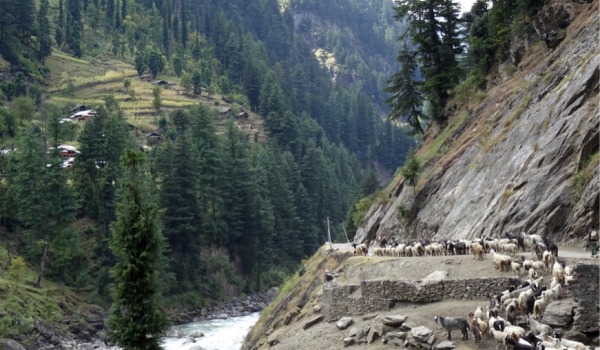Mountains cover 24% of the Earth’s land surface. They are home to 12% of the world’s population and another 14% of the population reside in their immediate proximity. They provide vital goods and services -particularly freshwater - to a significant proportion of humanity. Mountains are key centers of biological and cultural diversity as well important sites of traditional ecological knowledge, and influence the climate at many scales. In other words, they provide multiple ecosystem services across our planet. Therefore, their effective management is not only important for mountain communities, but also for a sizeable proportion of the global population. However, mountain ecosystems are particularly fragile, subject to both natural and anthropogenic drivers of change. These range from volcanic and seismic events and flooding to global climate change and the loss of vegetation and soils because of inappropriate agricultural and forestry practices, and extractive industries.
Communities in mountain regions face unique challenges, including a fragile ecology, natural disasters, and long distances to markets, educational facilities, and healthcare as well as high unemployment. Tourism brings benefits and potentially novel risks. Many communities have aging populations with out-migration of youth. Communities adapt to these challenges with diverse strategies, including engagement with traditional ecological knowledge, history, and narratives valuing landscape and social relationships. Less functional responses also emerge including mental illness, drug use, and alcoholism. High rates of environmental change combined with rapid economic and social changes are undermining the ability of mountain ecosystems to provide critical goods and services necessary for the well-being of mountain as well as lowland communities. Drawing from both the social and natural sciences, inter and transdisciplinary research is needed to understand these issues and processes and recommend effective policy measures.



